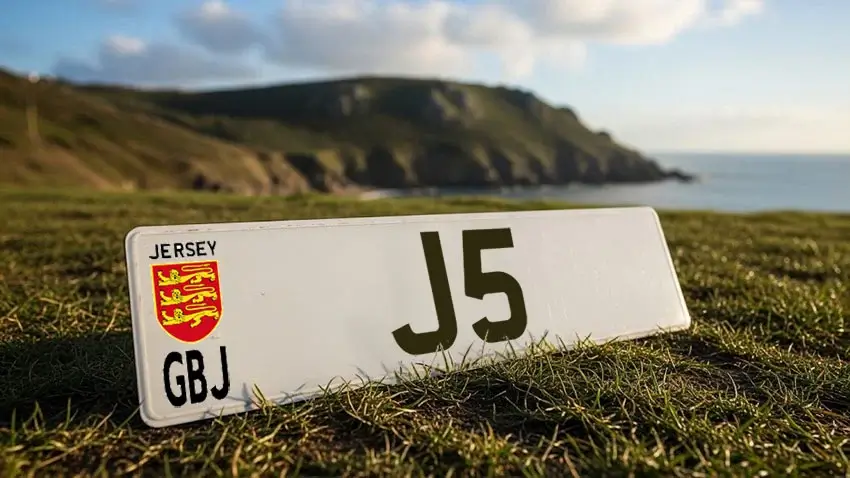Jersey?
Considering that the Channel Islands are amongst the UK's closest geographical neighbours and share our monarch, our language and our currency, British people seem to know very little about them. Many people think that the Channel Islands are part of the UK, while others think they are part of France. A survey of 2,000 Brits revealed that 80% of those asked couldn't tell photos of the Channel Islands from photos of Caribbean islands.
The Channel Islands aren't part of the UK or part of any other country, nor are they an independent country in their own right. They are Crown Dependencies, self-governing territories owned by the British Crown, but not actually a part of the UK. There are 19 islands and islets in all, of which most are small and uninhabited. They are divided into two self-governing entities called The Bailiwick of Jersey and The Bailiwick of Guernsey.
The Bailiwick of Jersey consists of the largest Island, Jersey, and several uninhabited islets. The Bailiwick of Guernsey consists of the second largest Island, Guernsey, the smaller inhabited islands Alderney, Sark, Herm, Jethou and Brecqhou, and several uninhabited islets. According to census data, the total population of the Channel Islands was approximately 172,000 in 2021. The population of Jersey was about 103,000.
Private number plates but no DVLA
The 2021 census indicated that there were over 68,000 private vehicles on Jersey, and that number is thought to have increased considerably since.
As in the UK, cars in the Channel Islands have to display registration numbers on number plates. Unlike the UK, the issue of registration numbers there is not governed by the DVLA. Jersey has its own body, Driver and Vehicle Standards (DVS), which is a department of the Jersey government. Despite this difference in governance, Jersey's physical number plates have to comply with British Standard BS AU 145e just as UK plates do. The country identifier code for Jersey's number plates is GBJ.
The registration numbers themselves generally consist of the letter J followed by one to six digits. However, a special series has also been issued bearing the letters JSY in place of the usual solitary letter J.
The buying and selling of private number plates is permitted on Jersey. According to Jerseyauctioneers.com, rules state that numbers can only be sold on a vehicle of some kind. They cannot be sold while on retention.
So they're allowed, but do people on Jersey actually buy personal plates?
Not only do Jersey residents buy private number plates, they are willing to pay very high prices for particularly desirable examples.
DVS sells numbers at auction, much as DVLA does in the UK. According to Simon Drieu & Co Limited, Jersey's largest auction house, J registrations generally command higher prices than JSY plates, even though JSY is nominally the "special series".
While not achieving high enough prices to earn a place in our rankings of the world's most expensive number plates, and not qualifying for inclusion in the table of UK's most expensive number plates because of the island's quirky geographical and political status, Jersey's private plates are still a very serious business.
So what are they worth?
In August 2025, the Jersey vehicle registration J5 was sold for £350,000. In this case, the required carrier vehicle for the transaction was a broken down scooter. Impressive though it was, J5's sale price wasn't the most that has been spent on one of the island's plates.
Jersey's top 10 most expensive number plates, so far as we can ascertain, are shown in the table below.
| Rank | Registration | Sale price | Year of sale |
|---|---|---|---|
| 1 | J4 | £380,000 | 2020 |
| 2 | J5 | £350,000 | 2025 |
| 3 | J69 | £230,000 | 2025 |
| 4 | J72 | £139,000 | 2022 |
| 5 | J69 | £103,000 | 2020 |
| 6 | J74 | £101,000 | 2022 |
| 7 | J68 | £91,000 | 2019 |
| 8 | J27 | £73,000 | 2017 |
| 9 | JSY 1 | £65,000 | 2013 |
| 10 | J71 | £63,000 | 2017 |
As well as featuring a coveted low, single-digit number, J4 had the additional status of being formerly owned by the Lieutenant Governor of Jersey.
Conclusions
This exploration of Jersey's vehicle registrations has been a bit of an eye-opener. As our customers are generally UK residents, we spend most of our time very focused on UK number plates, and the occasional headline-grabbing high-achievers in affluent places such as the UAE.
Looking at the Jersey experience, we are impressed by the substantial prices paid for number plates in such a relatively small community.
While we may be neighbours and family by merit of our shared history and culture, our car registration formats are strikingly different. It almost seems as if we in the UK don't know how lucky we are. We have a diverse and interesting range of number plate formats: suffix, prefix, current-style, dateless and variants thereof. Our registrations can spell names and words, they can represent birthdays and anniversaries, they can contain messages, puns, branding and so much more.
In Jersey, as in the UAE where very high prices are paid for desirable plates, there is little, if any, scope for inventiveness: there is no way to spell out words or names. Most of the fun seems to be missing from their number plate experience.
Perhaps we don't appreciate just how lucky we are. Despite its imperfections, our UK plate system allows for far more personalisation and creativity than most.
That said, there seems to be something innate in number plates that fascinates people. Although their plate formats may seem dull and restrictive to us, residents of places like Jersey still get enthusiastic enough about number plates to spend a great deal of their money to get the best they possibly can.
It really is quite extraordinary.
